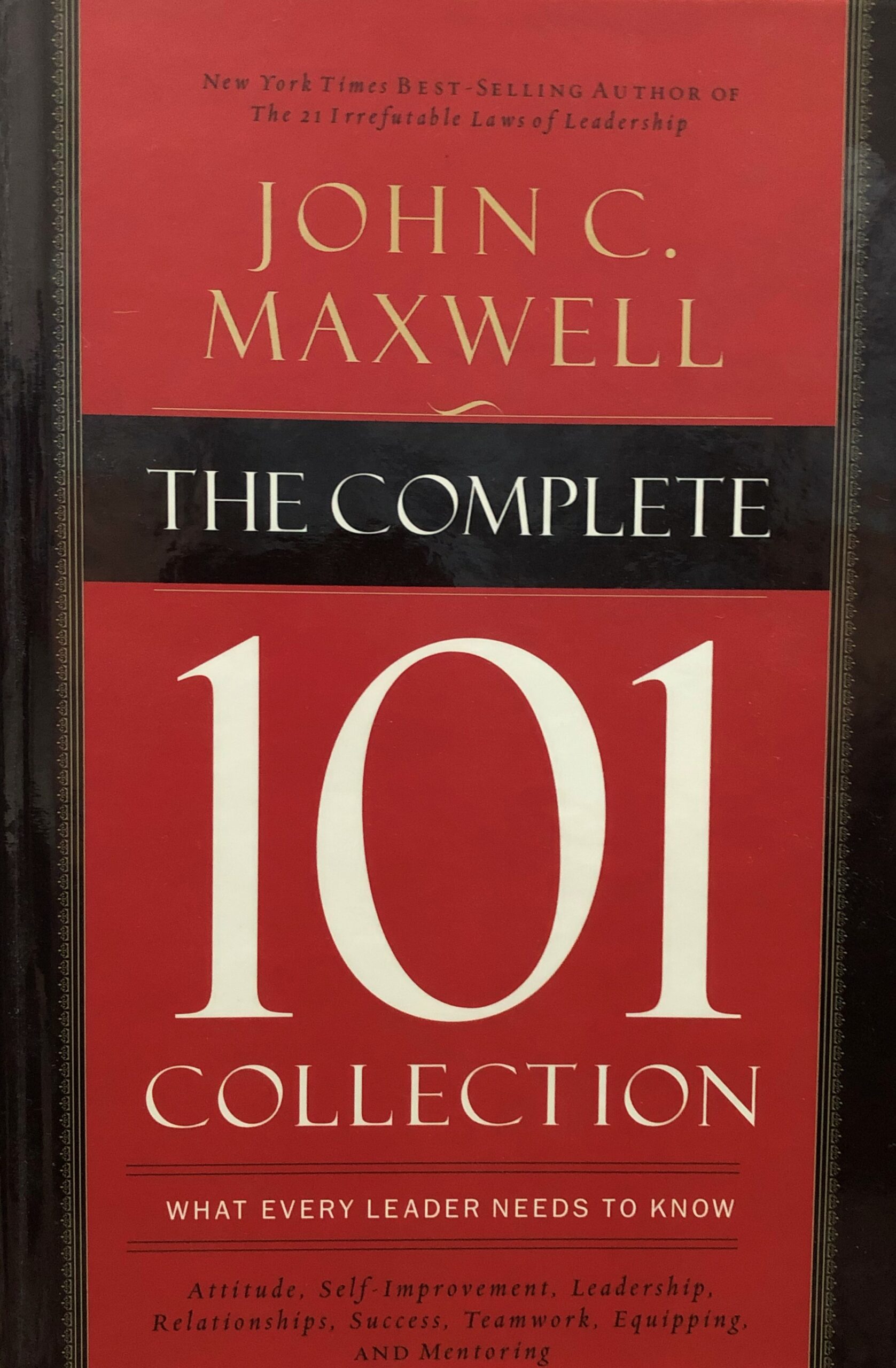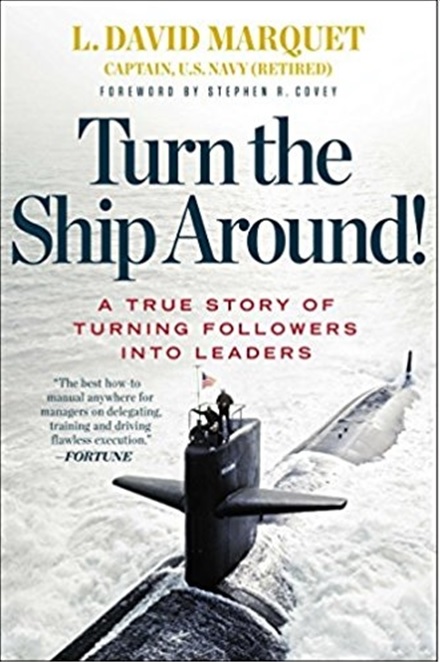Integrity is the bedrock of good leadership. Honest people believe in honest leaders, which creates a healthy work environment. There’s no doubt that we, as leaders, should understand why integrity is important.
There are three main reasons why integrity is important.
Honest Leaders Create Honest Organizations
In the military, we’re taught to take responsibility for our actions. Since I have been in the military, I have seen leaders lose their way due to dishonesty, which reflected poorly on themselves.
Conversely, I have seen great organizations prosper because their leaders made integrity a priority in their lives.
For example, my first duty assignment was an outstanding Military Police unit. The leadership emphasized accountability and improvement to foster a creative and innovative environment.
When I left that assignment, I continued to follow that leadership team until they transitioned to other units. As new leaders came, I saw a continued emphasis on accountability and integrity throughout the organization.
I saw further growth within that organization because the leaders took time to emphasize honesty and ownership. I will always remember those leaders who taught me to be honest in the large and small matters of military duty.
Honest leaders reflect on future impacts instead of concentrating on short-term losses. Former Joint Chiefs of Staff of the Army General (R) Martin Dempsey recounted his experience with an integrity-testing dilemma in his book No Time For Spectators.

Photo by Rebrand Cities
General Dempsey’s Mistake
General Dempsey went on frequent patrols with his platoon in Bayreuth, Germany. While on patrol, Dempsey lost an item used to manually encrypt messages.
Usually, the item consisted of laminated cards hung around the platoon leader’s neck by a string. Negligence in handling sensitive information is usually a career-ending offense for many.
Dempsey retraced his steps and found the laminated cards at the platoon’s previous rest stop. Even though the patrol found Dempsey’s lamented cards, Dempsey still had a choice.
He could continue the mission and forgo reporting that a sensitive item was lost. Or, he could report the loss.
The correct action was to report the loss. Dempsey reported the loss to his company commander. Afterward, an investigation began to establish the facts of the situation.
Following the investigation, Dempsey’s company commander wrote an internal memorandum to Dempsey that emphasized his duties to safeguard protected information.
This was far below the expected relief of duty and reassignment. Then, the case was closed.
Dempsey’s example of ownership highlighted his character. Even though the investigation was not ideal, reporting the loss was the correct response to a difficult situation.

Photo by Savvas Stavrinos
Subordinates Trust Honest Leaders
Subordinates receive better feedback from honest leaders. Moreover, great feedback happens because employees know that their boss has a vision for the employee.
I have received feedback from great leaders in the past who I knew had my best interests in mind.
For instance, early in my career, I had a great boss who helped me understand the value of integrity.
She patiently coached me on a project after making a mistake that created a minor setback for her and the rest of the team. Instead, she approached her boss and took ownership of the situation by protecting my reputation in the organization.
From that moment, I knew that she had strong character because she was willing to take responsibility for her team even when I made a mistake. As a result, I worked hard for her because I wanted to support her efforts in the organization.
Good Leaders Are Accountable
Good leaders are accountable for their actions, even if the situation is uncomfortable.
For example, the book Extreme Ownership talked about an experience where the author described a friendly fire situation in Iraq. The unfortunate event caused two friendly forces to shoot at each other in a complex urban environment.
The authors, Jocko Willink and Leif Babin wrote about how those involved took ownership of the situation and held themselves to a higher standard afterward.
Many situations will not involve life or death, but consider other situations that allowed companies to thrive because they took ownership of their situations.
For instance, there’s a book called Can’t Hurt Me by David Goggins, who took accountability seriously. After abuse, instability, and heartache, Goggins realized that he needed to account for his wrongdoings to change his life. He became responsible for his life and became successful.
Conversely, people without integrity will not take responsibility for their actions. They’ll justify their reasons for breaking a rule and place blame on others for their mistake. Leaders who aren’t honest will also avoid taking responsibility for their team’s errors and avoid coaching struggling employees.
Leaders who have integrity are priceless.

Photo by Brett Jordan
Conclusion
Leaders with character are critical to today’s work environments. Learn to accept responsibility in the smallest aspects of your life, and you’ll learn the first steps of leadership. If you need, here are some evaluation questions to ask yourself:
– Am I doing what’s right even when no one is watching?
– Is there someone that needs my help, and I jump to assist?
– Am I taking responsibility for issues that involve me?
Ask yourselves these questions, and you’ll find yourself evaluating how to make your work experience better.
How do you stay accountable in your workplace? Let me know in the comments section below.
Books Mentioned
No Time for Spectators by General Martin Dempsey. Here’s a book review.
Extreme Ownership by Jocko Willink and Leif Babin. Here’s a book review.
Can’t Hurt Me by David Goggins. Here’s a book review.
Photo Credit
Featured Image: by Mikael Blomkvist
1: by Rebrand Cities
2: by Savvas Stavrinos
3: by Brett Jordan





Hi Robert, I just read your invaluable post about Critical Leadership Quality…, It is quite a good read. I totally agree with the assertion that subordinates trust their leader. How I wish many leaders will know what leadership requires, the skills, qualities, and the influence they command or suppose to command. If a leader is a person of character which has to do with integrity, by the way, he or she will be trusted and respected by his or her subordinates.
Another point you made is that leaders with integrity are priceless. That’s true. Today, many organizations, institutions, government, mostly third world countries, lack leadership skills, and integrity, hence there is no trust between the government and the governed, even in the homes, so many people who suppose to be leaders in their homes are not leading with example. It seems that many leaders are just after the title and position, and the popularity, and nothing more. Leadership is about dealing with people, about solving problems that have to do with Basic Human Needs as articulated by Abraham Maslow the great Psychology theorist. The world is highly in need of leaders with integrity.
Valuable post. Thanks for sharing.
Favorme.
Favorme,
I’m glad you enjoyed the post! You’re right that one of the best leadership skills to develop is integrity. Sometimes, popularity does get in the way, too. Thank you for your comment!
Robert
a good leader must exhibit certain traits that is needed of him to be able to lead his fellow as I want of this trade is integrity..Integrity is the most important trait of leadership in our society because regardless of what other beneficial characteristics exist, people will not follow someone unless they have established trust with them…therefore a good leader must exhibit such traits in order to be able to lead his followers….
Evans,
Like you said, leaders do need to have good habits to be effective. One of those is integrity. I appreciate your comment!
Robert
Thank you so much for this critically important article, Robert! Integrity is one of the cornerstones of an effective leader and a successful company. I had a boss that micromanaged to the extreme, constantly cut corners, and garnered a less than flattering reputation in the field (legal). We dreaded coming to the office everyday (we loved our clients, but were completely drained from the toxic work environment and our boss’s professional ineptitude), many people ended up leaving, and a month before the pandemic hit, it was announced that the business would be closing its’ doors for good. Doing the right thing may not always seem easy, but it will always be the better decision and will leave you in a better place in the long run. Thank you for addressing this. God bless you!
C.N,
I’m so sorry you suffered from a boss who micromanaged everything. That’s not easy. You’re right that doing the right thing isn’t always easy, but it is worth it in the end. Thank you for your comment!
Robert
Hi Robert,
Interesting take on integrity and leadership and how they go hand-in-hand. In this day and age, it’s not always easy to be a leader, let alone one with integrity, given that each person you may be leading has their own moral compass of right and wrong. Sometimes it’s not as simple as black and white and leaders really have to make tough calls in order to constantly maintain their integrity. I’ve held many leadership positions in my life, at work and at home, and I agree that it’s a tough quality to maintain, but in the end a rewarding one to have! Good post!
Dehi,
It is difficult to make that balance, your right. We have to have interests align in our workplaces. Thank you for your comment!
Robert
I know quite a few people already in leadership that could benefit from this article! I really like how much you focus on a leader being trustworthy. If employees (though you don’t have to be in management to be a leader) can trust their leader to not only be honest with them, but to also do what is right….that is like hitting the jackpot for employee loyalty.
Alena,
You’re absolutely right that you don’t have to be in leadership to be a leader! If you’re interested, I have another article specifically about that right here: https://leadershipbrownbag.com/how-to-lead-when-youre-not-in-charge/ Thank you for your comment!
Robert
I personally believe that integrity is easily one of the most important traits that a person needs to have in life. If you are not honest then people will simply not trust you. I personally believe that honesty is one of my strongest traits, but, like everyone, I can definitely improve in this trait. Thank you for reminding me about the important of integrity Robert!
Alejandro,
Integrity is very important to have in life, you’re right. I’m glad that you’re an honest person, and that it’s one of your strongest traits. I’m glad to help remind you. Thank you for your comment!
Robert
Thank you! I’m glad you enjoyed it.
Robert